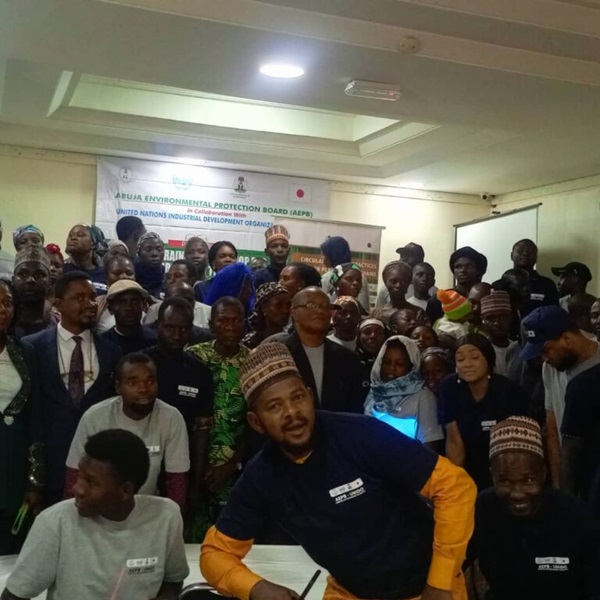
The United Nations Industrial Development Organisation (UNIDO), in collaboration with the Abuja Environmental Protection Board (AEPB), the Federal Ministry of Environment and other stakeholders, has trained waste pickers on sustainable waste management practices.
Speaking at a one-day training session for waste workers in Jabi District, Abuja, UNIDO national programme officer, Dr. Osuji Otu explained that the training aimed to enhance the capacity of waste workers in promoting a sustainable plastic value chain through circular economy practices, ultimately contributing to climate change mitigation.
The event attracted participants from various districts across Abuja, including members of the Waste Pickers Association of Nigeria, AEPB officials, waste management experts and other relevant stakeholders.
Otu emphasised the importance of engaging stakeholders to ensure proper waste management as a key strategy in combating climate change. He highlighted that addressing plastic pollution requires advocacy and raising awareness about better plastic usage and disposal practices in Abuja and across Nigeria.
“The issue of plastic waste management has gained significant attention in recent years,” Otu said, noting that the concept of a circular economy focuses on minimising waste and maximising resource value by keeping materials in use for as long as possible. “This underscores the need to train waste workers on best practices.
“I encourage all of you to participate actively, as your involvement is crucial to the success of this project. We have already trained several waste management experts who will, in turn, train you. I’m especially pleased to see so many women here today,” he added.
In his remarks, the deputy director of AEPB, Engr. Douglas Olonto commended waste pickers across the FCT for their tireless efforts in keeping the federal capital clean and healthy. He assured them that AEPB and UNIDO would continue to support their work to make their tasks easier.
Similarly, AEPB’s Director of Solid Waste Management Benjamin Enwerem, explained that Jabi was selected for the plastic project due to the area’s mixed settlements.
“Jabi includes a diverse mix of business institutions, organised settlements, villages, commercial centers, schools, and offices,” Enwerem noted. “In this project, we will target both formal and informal settlements in Jabi for plastic recycling.”
During the training, experts delivered lectures on various topics, including the types and characteristics of plastic waste, proper storage of plastic waste, best practices in transportation, and the hazards associated with plastic waste collection and handling.


